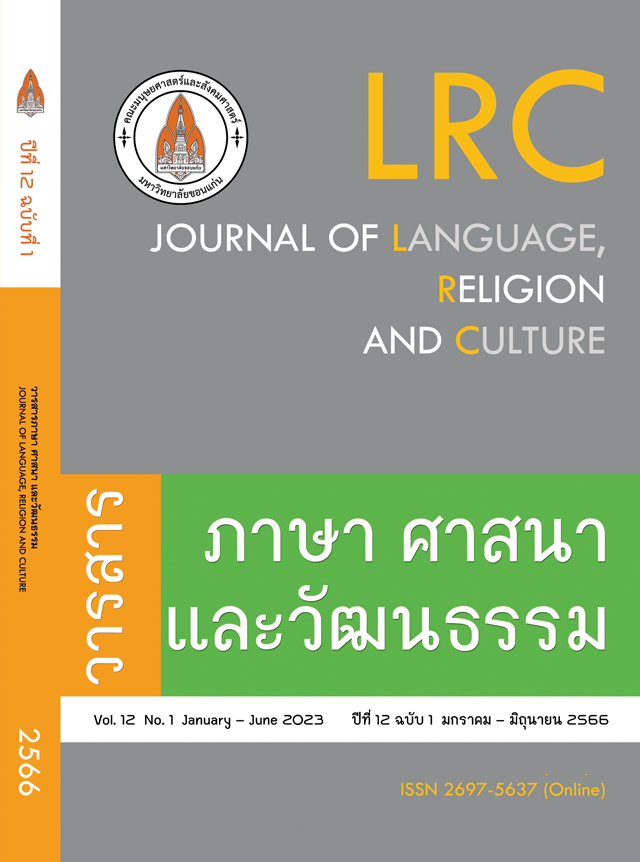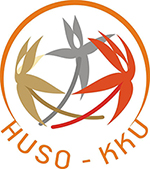A Study of Criticism Strategies in a British Reality Show “The Great British Bake Off Season 11”
การศึกษากลวิธีการวิจารณ์ในรายการเรียลลิตี้โชว์สัญชาติอังกฤษ “The Great British Bake Off ปีที่ 11”
Keywords:
Criticism, criticism strategies, the Great British Bake OffAbstract
The purpose of this study was to examine the pragmatic strategies of critique within the setting of a television program. This study collected data of the British judges’ criticism comments from five episodes of Season 11 of The Great British Bake Off, which contained 100 commenting sequences. The analytical framework was derived from criticism-related studies that divided criticism into direct and indirect categories. The findings indicated that direct types were employed more frequently than the indirect ones. British judges most frequently employed the sub-strategy of expressing a negative attitude while delivering direct criticism, emphasizing the judge's choice and generating a sense of authority. For the application of indirect criticism, the judges utilized both the sub-strategy of expressing an expectation and suggestion. The first method avoided direct confrontation by asserting that the outcome differed from the judge’s expectations, while the second strategy offered positive suggestions for the contestant’s future growth. In particular, it was hypothesized that the results of the criticism strategies were influenced by both the position of the competition program’s judges and politeness. This research contributes to the existing criticism and media literature.
References
Austin, J. L. (1962). How to do things with words. Great Britain: Oxford University Press.
Blitvich, P. GC., Bou-Franch, P., & Lorenzo-Dus, N. (2013). Identity and impoliteness: The expert in the talent show Idol. Journal of Politeness Research, 9(1), 97–121.
Blum-Kulka, S., House, J., & Kasper, G. (1989). Cross-cultural pragmatics: Requests and apologies. Norwood, NJ: Ablex Publishing Corporation.
Brown, P., & Levinson, S. C. (1987). Politeness: Some universals in language usage. New York, NY, US: Cambridge University Press.
Cakici, C., Erdem, S. H., & Sunnetcioglu, A. (2020). The Effect of Travel Lifestyle, Cultural Sensitivity and Food Neophobia on Local Food Preference. Journal of Tourism and Gastronomy Studies, 8, 746-761.
Chen, Y-L., & Rau, V. (2015). Compliments and Criticisms Given by Judges on Singing Competition Series in Taiwan. Studies in English Language and Literature, 35, 1-19.
Culpeper, J., & Holmes, O. (2013). (Im)politeness and exploitative TV in Britain and North America: The X Factor and American Idol. In: Lorenzo-Dus, N., Blitvich, P.GC. (eds) Real Talk: Reality Television and Discourse Analysis in Action (pp. 169-198). Palgrave Macmillan, London.
Diani, G. (2017). Criticism and politeness strategies in academic review discourse: a contrastive (English-Italian) corpus-based analysis. KALBOTYRA, 60-78.
El-Dakhs, D. (2020). How do celebrities respond to criticism in media interviews: The case of an Egyptian TV show. Cogent Arts & Humanities, 7, 1-17.
Eskreis-Winkler, L., & Fishbach, A. (2020). When praise—versus criticism—motivates goal pursuit. In: Brummelman, E. (ed) Psychological perspectives on praise (pp. 47-54). Abingdon, UK: Routledge.
Esposito, A. (2018). International Food Television Show Formats in the Digital Era. (Ph.D), University of Glasgow. Retrieved from https://theses.gla.ac.uk/30925/1/2018espositophd.pdf
Etaywe, A. (2018). A Pragmalinguistic and Sociopragmatic Study of Praise and Criticism in Academic Writing: The Case of Arabic Academic Book Reviews. International Journal of Humanities and Cultural Studies, 4(2), 87-121.
Farnia, M., Abdul Sattar, H., & Sattar, A. (2015). A Sociopragmatic Analysis of the Speech Act of Criticism by Persian Native Speakers. International Journal of Humanities and Cultural Studies, 2(3), 305-327.
Goffman, E. (1955). On face-work: an analysis of ritual elements in social interaction. Psychiatry. Journal for the Study of Interpersonal Processes, 18, 213– 231.
Hyland, K. (2004). Disciplinary Discourses: Social Interactions in Academic Writing. University of Michigan Press.
Lenz, M. (2020). Criticism and Silencing in Academia: The Ambivalence of Feedback. Zoon Politikon, (11), 257-280.
Lin, C.-Y. (2020). Exploring judges’ compliments and criticisms on American, British, and Taiwanese talent shows. Journal of Pragmatics, 160, 44-59.
Matwick, K., & Matwick, K. (2019). Evaluations on Cooking Shows. In Food Discourse of Celebrity Chefs of Food Network (pp. 79-118). Springer International Publishing.
Nguyen, T. T. M. (2005). Criticizing and responding to criticisms in a foreign language: a study of Vietnamese learners of English. (Ph.D), The University of Auckland. New Zealand. Retrieved from https://researchspace.auckland.ac.nz/docs/uoa-docs/rights.htm
Nguyen, T. T. M. (2008). Criticizing in a L2: Pragmatic strategies used by Vietnamese EFL learners. Intercultural Pragmatics, 5(1), 41-66.
Searle, J. R. (1979). Indirect speech acts. In J. R. Searle (Ed.), Expression and Meaning: Studies in the Theory of Speech Acts (pp. 30-57). Cambridge: Cambridge University Press.
Sharma, D. K., Singh, B., Agarwal, S., Kim, H., & Sharma, R. (2022). Sarcasm Detection over Social Media Platforms Using Hybrid Auto-Encoder-Based Model. Electronics, 11(18).
Tang, C.-C. (2016). Managing criticisms in US-based and Taiwan-based reality talent contests: A cross-linguistic comparison. Pragmatics, 26, 111-136.
Yule, G. (1996). Pragmatics: Oxford University Press.
Zou, H., & Hyland, K. (2020). Managing evaluation: Criticism in two academic review genres. English for Specific Purposes, 60, 98-112.
Downloads
Published
How to Cite
Issue
Section
License
Copyright (c) 2023 JOURNAL OF LANGUAGE, RELIGION AND CULTURE

This work is licensed under a Creative Commons Attribution-NonCommercial-NoDerivatives 4.0 International License.







